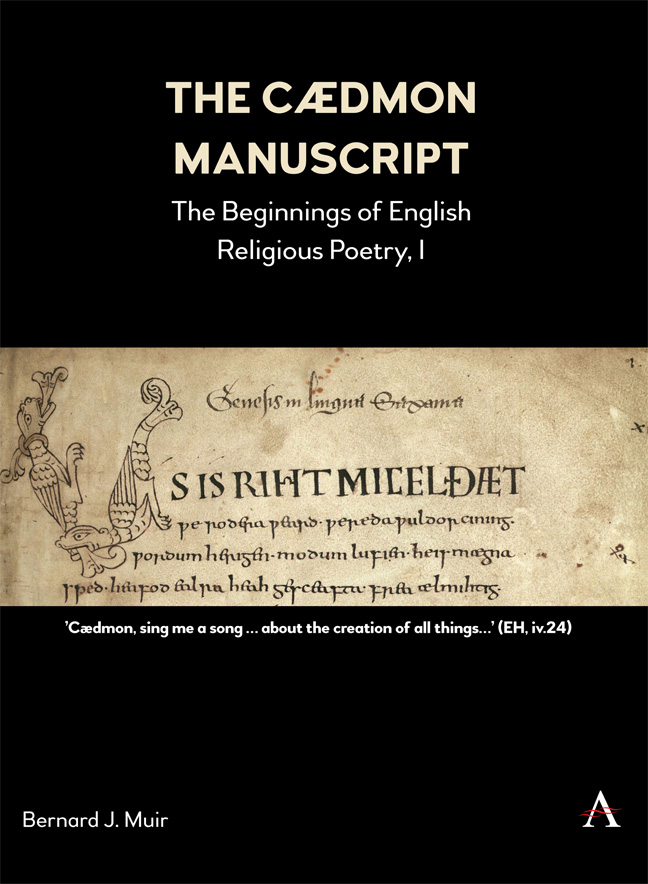Foreword
Published online by Cambridge University Press: 29 February 2024
Summary
This edition of Oxford, Bodleian Library, MS Junius 11 supersedes all previous editions, including the present editor's own digital edition of 2004 published as Bodleian Digital Texts 1, in that it is a completely new analysis of the manuscript based on a thorough paleographical and codicological re-examination. Readers today have online access to the complete set of high resolution scans made for the 2004 edition so there is no need to reproduce details of the manuscript itself, including its much admired and commented upon decorated and zoomorphic initials.
The analysis of the manuscript presented here may include a plethora of information not required by individual readers, but it aims to meet the needs of a variety of users for many years to come. For example, the edition reproduces every accent mark in the manuscript because scholars today are still uncertain of their use and relevance, but tomorrow someone may deduce why the scribes and correctors went to the trouble of including them on every page of the manuscript.
So too, a translation of the texts is not included here because Anlezark 2002 presents a new translation of Genesis A and B, Exodus and Daniel. Christ and Satan is available elsewhere (e.g. Gordon rev. 1954) and since it is not an Old Testament retelling and versification in Old English it is not considered by Anlezark. Other recent translations are included in the online 'Old English Poetry Project’ (q.v.).
The maxim ‘Pride goes before a fall’ would be an appropriate subtitle for this anthology of Christian poetry since this is the overriding theme of all four poems, which are about falls resulting from disobedience due to excessive pride and a lack of humility.
Christ and Satan presents a special case since it has been corrected by a later hand, perhaps the scribe of earlier poems in the anthology. Either this corrector or a later reader also added (mostly squeezed in) a plethora of punctuation marks, and those resembling an inverted semicolon (./ – the punctus elevatus) can easily be confused for an accent mark by readers not used to this.
- Type
- Chapter
- Information
- The Cædmon ManuscriptThe Beginnings of English Religious Poetry, I, pp. vii - viiiPublisher: Anthem PressPrint publication year: 2023

